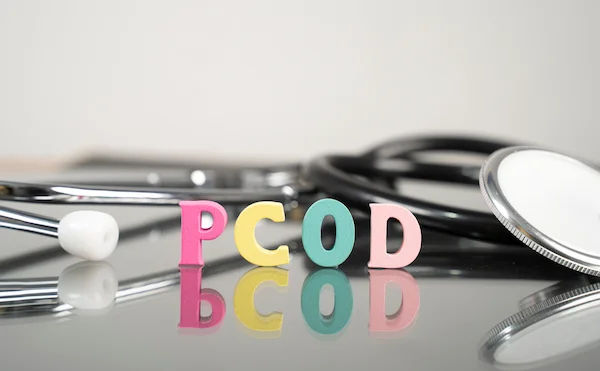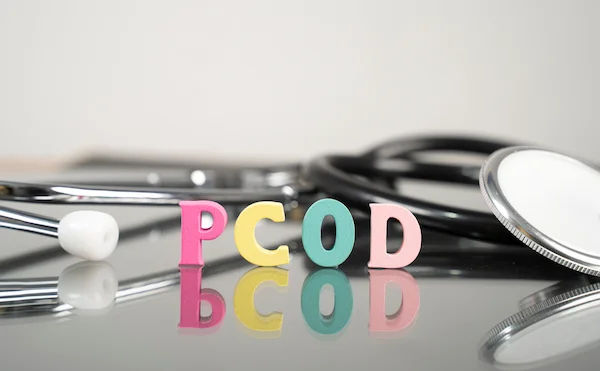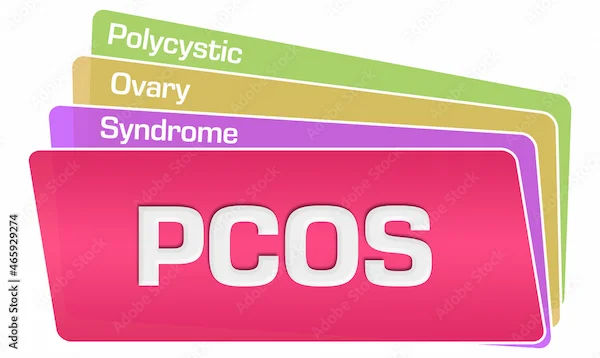Differences Between PCOD and PCOS Explained
Know about the PCOS & PCOD, symptoms, causes, diagnosis and how they are managed and more.

Written by Dr. J T Hema Pratima
Reviewed by Dr. Shaik Abdul Kalam MD (Physician)
Last updated on 13th Jan, 2026

Introduction
If you’ve heard the terms PCOD (Polycystic Ovarian Disease) and PCOS (Polycystic Ovary Syndrome) and wondered whether they’re the same, you’re not alone. Many women get confused between the two because they share similar symptoms. However, they are different conditions that affect women’s hormonal health in distinct ways.
In this article, we’ll break down the differences between PCOD and PCOS in simple terms, helping you understand their causes, symptoms, and how they impact your health. We’ll also share some practical tips to manage these conditions effectively.
Consult Top Specialists for Personalised Tips
What Are PCOD and PCOS?
The PCOD and Pcos are:
PCOD (Polycystic Ovarian Disease)
PCOD is a common hormonal disorder where the ovaries produce immature or partially mature eggs, which may turn into small cysts.
It is not considered a disease but rather a condition that can be managed with lifestyle changes.
Many women with PCOD still ovulate regularly and can conceive with proper treatment.
PCOS (Polycystic Ovary Syndrome)
PCOS is a metabolic and endocrine disorder that affects hormone levels, leading to irregular periods, excess male hormones (androgens), and cysts in the ovaries.
It is a more severe condition than PCOD and can lead to long-term health complications like diabetes, heart disease, and infertility.
Women with PCOS often struggle with ovulation, making conception difficult without medical intervention.
Key Differences Between PCOD and PCOS
Symptoms of PCOD vs PCOS
Both conditions share some common symptoms, but PCOS symptoms are usually more severe:
Common Symptoms in Both PCOD and PCOS:
The common symptoms include:
Irregular or missed periods
Heavy or painful periods
Excess facial and body hair (hirsutism)
Acne and oily skin
Weight gain (especially around the waist)
Hair thinning or male-pattern baldness
Difficulty getting pregnant
Additional Symptoms in PCOS:
These include:
Dark patches on skin (acanthosis nigricans)
Severe insulin resistance
Higher risk of sleep apnea and mood disorders
What Causes PCOD and PCOS?
The exact cause is still unclear, but researchers believe the following factors play a role:
PCOD Causes:
The PCOD causes include:
Hormonal imbalance (high androgens)
Genetics (family history of PCOD)
Lifestyle factors (poor diet, lack of exercise, stress)
PCOS Causes:
The PCOS causes include:
Insulin resistance (body doesn’t use insulin properly, leading to high blood sugar)
High androgen levels (causing male-like symptoms)
Chronic inflammation (linked to weight gain and hormonal issues)
Genetic predisposition (runs in families)
How Are PCOD and PCOS Diagnosed?
Doctors use a combination of tests to diagnose these conditions:
1. Medical History & Symptoms Check – Discussing menstrual cycles, weight changes, and other symptoms.
2. Blood Tests – Checking hormone levels (LH, FSH, testosterone, insulin, etc.).
3. Ultrasound – Looking for cysts in the ovaries.
Diagnostic Criteria for PCOS (Rotterdam Criteria)
A woman must have at least two of these three:
Irregular or absent periods
High androgen levels (or symptoms like excess hair growth)
Polycystic ovaries on ultrasound
PCOD, on the other hand, is usually diagnosed if cysts are present but hormonal imbalances are milder.
How to Manage PCOD and PCOS?
While there’s no complete cure, lifestyle changes and medical treatments can help manage symptoms effectively.
1. Diet and Nutrition
Eat Whole Foods: Focus on fresh vegetables, lean proteins, whole grains, and healthy fats.
Avoid Sugar & Processed Foods: These worsen insulin resistance.
Low Glycemic Index (GI) Foods: Help control blood sugar (e.g., oats, lentils, nuts).
2. Exercise Regularly
Cardio & Strength Training: Helps with weight loss and insulin sensitivity.
Yoga & Stress Management: Reduces cortisol (stress hormone) levels.
3. Medications (if needed)
Birth Control Pills: Regulate periods and reduce androgen levels.
Metformin: Improves insulin resistance in PCOS.
Fertility Treatments: Like Clomid or IVF for women trying to conceive.
4. Natural Remedies
Spearmint Tea: May reduce excess hair growth.
Inositol Supplements: Helps with insulin resistance.
Omega-3 Fatty Acids: Reduces inflammation.
When to See a Doctor?
If you experience:
Irregular periods for more than 3 months
Severe acne or unwanted hair growth
Sudden weight gain without diet changes
Difficulty getting pregnant
It’s best to consult a gynecologist or endocrinologist for proper diagnosis and treatment.
Final Thoughts
PCOD and PCOS may seem similar, but they affect women differently. While PCOD is more common and manageable, PCOS requires careful medical supervision due to its long-term risks. However, with the right diet, exercise, and treatment, you can lead a healthy life.
Consult a top gynaecology specialist for the best advice
Consult Top Specialists for Personalised Tips

Dr. Mona Yadav
Obstetrician and Gynaecologist
19 Years • MBBS, MD (Obstetrics & Gynaecology)
Dombivli
Nulife multispeciality, Dombivli

Dr. Parul Sharma
Obstetrician and Gynaecologist
8 Years • MBBS, MS (Obstetrics & Gynaecology)
New Delhi
THE DOCTORS NESST, New Delhi

Dr. Asha Rani Singh
Obstetrician and Gynaecologist
24 Years • MBBS DGO
Delhi
Dr Asha Rani Singh Clinic, Delhi

Dr. Shyamala Devi
Obstetrician and Gynaecologist
38 Years • MBBS, MS Obstetrics & Gynaecology
Vijayawada
Sri Shivshakti Nilayam, Vijayawada
Dr. K Anusha
Obstetrician and Gynaecologist
4 Years • MBBS, DGO
Yemmiganur
SRINIVASAA HOSPITAL, Yemmiganur
Consult a top gynaecology specialist for the best advice

Dr. Mona Yadav
Obstetrician and Gynaecologist
19 Years • MBBS, MD (Obstetrics & Gynaecology)
Dombivli
Nulife multispeciality, Dombivli

Dr. Parul Sharma
Obstetrician and Gynaecologist
8 Years • MBBS, MS (Obstetrics & Gynaecology)
New Delhi
THE DOCTORS NESST, New Delhi

Dr. Asha Rani Singh
Obstetrician and Gynaecologist
24 Years • MBBS DGO
Delhi
Dr Asha Rani Singh Clinic, Delhi

Dr. Shyamala Devi
Obstetrician and Gynaecologist
38 Years • MBBS, MS Obstetrics & Gynaecology
Vijayawada
Sri Shivshakti Nilayam, Vijayawada
Dr. K Anusha
Obstetrician and Gynaecologist
4 Years • MBBS, DGO
Yemmiganur
SRINIVASAA HOSPITAL, Yemmiganur




.webp)